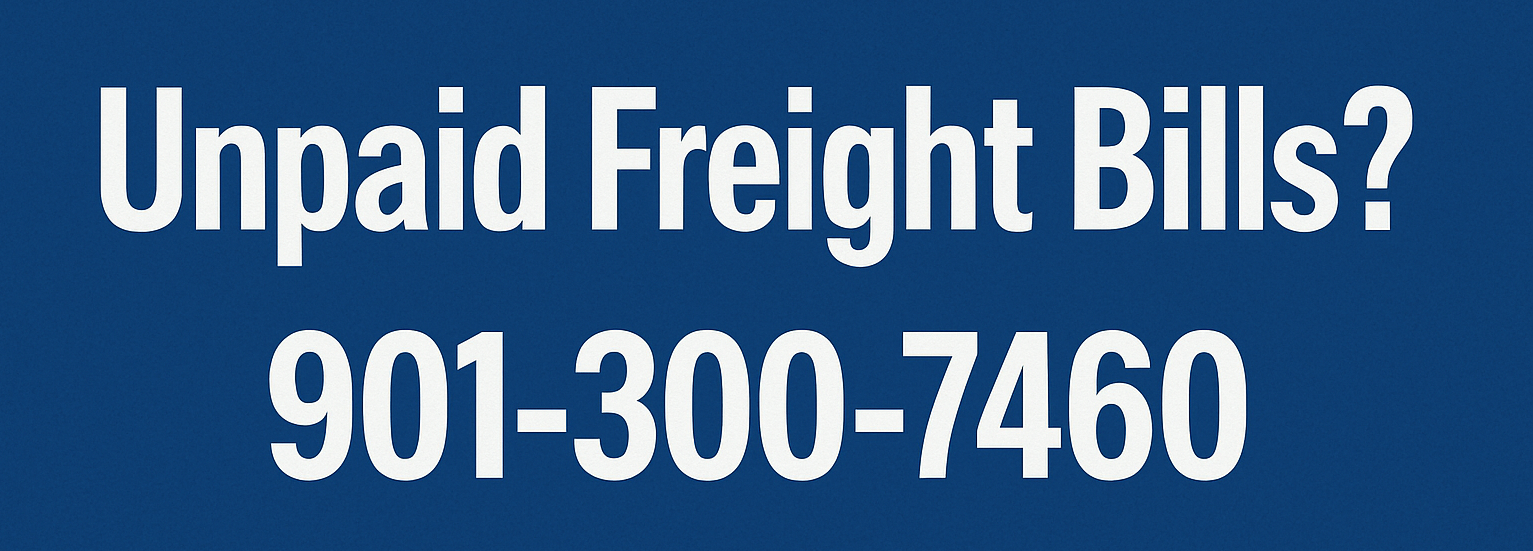In recent years, freight broker scams have become one of the fastest-growing threats to trucking companies and owner-operators across the United States. The rise of double brokering, fraudulent carriers, and brokers who simply vanish without paying carriers has caused significant financial damage in the logistics industry.
Truckers work long hours and carry the backbone of the economy on their backs, but too often, dishonest freight brokers take advantage of their hard work by failing to pay for completed loads. Carriers find themselves chasing invoices for weeks or months, only to discover that the broker has shut down, changed names, or never intended to pay in the first place.
This article will break down what freight broker scams look like, how they operate, and why carriers must stay vigilant. Most importantly, it will explain why contacting Bill at 901-300-7460 can make the difference between writing off a loss and actually recovering the money you’re owed.
What Are Freight Broker Scams?
Freight broker scams usually fall into one of a few categories:
- Non-Payment or Slow Pay
A broker books a load, a carrier delivers it, and when it’s time to get paid, the broker disappears or endlessly delays payment. Some brokers string carriers along with excuses like “the shipper hasn’t paid us yet” or “we’re waiting on accounting,” while others shut down operations altogether. - Double Brokering
This is one of the most dangerous scams in the industry. A fraudulent broker books a load from a shipper and then reposts it to another carrier without the shipper’s knowledge. The carrier moves the freight, but payment never comes because the broker pocketed the money. - Identity Theft / Fake MC Numbers
Some scammers use stolen MC numbers or impersonate legitimate brokerages to win loads. By the time the real company discovers their identity was hijacked, the carrier is left unpaid with little recourse. - Fly-By-Night Operations
These are newly created brokerages that set up shop, quickly post loads, fail to pay carriers, and then shut down before the FMCSA or carriers can catch them. Within weeks, they reopen under a new name and repeat the cycle.
The Impact on Carriers
The financial losses from freight broker scams are devastating. For small trucking companies or single-owner operators, one unpaid load can mean thousands of dollars lost — money that should cover fuel, insurance, and payroll.
Beyond financial loss, scams damage trust in the logistics system. Carriers waste time chasing payments instead of focusing on moving freight. They are also often left with little legal recourse, since chasing brokers across state lines can be complicated and expensive.
Some trucking companies have been forced out of business entirely after falling victim to repeat broker scams. The issue has grown so severe that industry watchdog groups and collection specialists are stepping in to help carriers recover.
Why Carriers Should Call Bill at 901-300-7460
When you are left unpaid by a fraudulent broker, your first instinct might be to try collections yourself. However, most carriers discover that chasing down these debts requires more than phone calls and emails. Fraudulent brokers are skilled at hiding, moving money, and shutting down before anyone can catch them.
This is where Bill at 901-300-7460 comes in. Bill specializes in helping trucking companies and carriers recover unpaid invoices from fraudulent brokers. With years of experience in logistics collections, Bill knows the tricks brokers use and has the tools to track them down.
Carriers who call Bill can expect:
- Professional Collections Expertise – He understands freight contracts, factoring, and the legal requirements for brokers to pay carriers.
- Aggressive Recovery Tactics – Unlike general debt collectors, Bill focuses on the trucking and freight industry, giving him insider knowledge of how scams operate.
- Time Savings – Instead of wasting weeks chasing a dead-end broker, carriers can focus on running loads while Bill handles the recovery process.
- Higher Recovery Chances – Many carriers who would otherwise write off unpaid invoices have successfully recovered money through Bill’s services.
If you are owed money by a broker, calling 901-300-7460 should be your first step. The longer you wait, the harder it becomes to track down and recover funds.
How to Avoid Freight Broker Scams
While recovery services are critical after a scam occurs, prevention is equally important. Carriers can take several steps to minimize their risk:
- Verify MC Authority and Credit
Before hauling for any broker, check their FMCSA registration, authority status, and credit rating. Many load boards provide this information. - Check Payment History
Look for reviews or complaints from other carriers. If a broker has a history of late payments, proceed with caution. - Watch for Red Flags
Be wary of brokers offering unusually high rates, demanding quick acceptance, or refusing to provide clear paperwork. - Use Trusted Load Boards and Tools
Stick to reputable load boards and factoring services that vet brokers carefully. - Report Scams
If you’ve been scammed, report the broker to the FMCSA and industry watchdog websites to prevent others from being victimized.
Final Thoughts
Freight broker scams are a growing problem that threatens the stability of the trucking industry. Every carrier, from single operators to large fleets, must stay vigilant and know where to turn if they fall victim to fraud.
If you are owed money by a fraudulent or non-paying broker, don’t wait until it’s too late. Call Bill at 901-300-7460 and take action today. Recovering your funds could be the difference between surviving another month in business or becoming another casualty of freight broker scams.
Truckers deserve to be paid fairly and on time for the work they do. With the right precautions and the right help, carriers can protect themselves, recover lost funds, and continue driving the backbone of America’s economy forward.
